
The 2004 United States Senate elections were elections for one-third of the seats in the United States Senate which coincided with the re-election of George W. Bush as president and the United States House election, as well as many state and local elections. Senators who were elected in 1998, known as Senate Class 3, were seeking re-election or retiring in 2004. This was the third consecutive election for Senate Class 3 where the Democrats failed to end up with a net gain. This also marked the first time since 1980 in which a presidential candidate from either party won with coattails in the Senate. As of 2018, these are the last elections held during a Presidential election year in which the Republicans made a net gain of seats.

The 2000 United States Senate elections, was held on November 7, 2000. The elections coincided with other federal and state elections, including the presidential election which was won by Republican George W. Bush. It featured a number of fiercely contested elections that resulted in a victory for the Democratic Party, which gained a net total of four seats from the Republican Party. This election marked the first election year since 1988 where Democrats made net gains in the Senate.
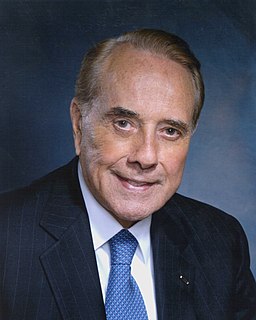
The 1994 United States Senate elections were elections held November 8, 1994, in which the Republican Party was able to take control of the Senate from the Democrats. In a midterm election, the opposition Republicans held the traditional advantage. Congressional Republicans campaigned against the early presidency of Bill Clinton, including his unsuccessful health care plan.

The 1988 United States Senate elections was an election for the United States Senate in which, in spite of the Republican victory by George H. W. Bush in the presidential election, the Democrats gained a net of one seat in the Senate. Seven seats changed parties, with four incumbents being defeated. The Democratic majority in the Senate increased by one from 54/46 to 55/45.

The 1986 United States Senate elections was an election for the United States Senate in the middle of Ronald Reagan's second presidential term. The Republicans had to defend an unusually large number of freshman Senate incumbents who had been elected on President Ronald Reagan's coattails in 1980. Democrats won a net of eight seats, defeating seven freshman incumbents and regaining control of the Senate for the first time since January 1981. The party not controlling the presidency gained seats, as usually occurs in mid-term elections.

The 1980 United States Senate elections coincided with Ronald Reagan's victory in the presidential election. Reagan's large margin of victory over incumbent Jimmy Carter pulled in many Democratic voters and gave a huge boost to Republican Senate candidates.

The 2006 United States Senate elections were held on November 7, 2006, with all 33 Class 1 Senate seats being contested. The term of office for those elected in 2006 ran from January 3, 2007, to January 3, 2013. Prior to the election, the Republican Party controlled 55 of the 100 Senate seats.
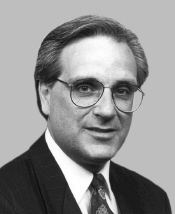
Ronald "Ron" Klink is a Democratic politician and former United States Representative from Pennsylvania.

The Pennsylvania gubernatorial election of 2006 was held on November 7, 2006 and included the races for the Governor of Pennsylvania and Lieutenant Governor of Pennsylvania.

Mark Stephen Singel is an American politician who served as the 27th lieutenant governor of Pennsylvania from 1987 to 1995, alongside Governor Bob Casey. Singel served as the state's acting governor from June 14, 1993 to December 13, 1993, during Casey's lengthy battle with amyloidosis and subsequent multiple organ transplant.

The 2006 United States Senate election in Pennsylvania was held November 7, 2006. Incumbent Republican Rick Santorum ran for re-election to a third term, but was defeated by Bob Casey, Jr., the son of Former Pennsylvania governor Bob Casey Sr. Casey was elected to serve between January 3, 2007 and January 3, 2013. Santorum trailed Casey in every public poll taken during the campaign. Casey's margin of victory was the largest ever for a Democratic Senate nominee in Pennsylvania, and the largest margin of victory for a Senate challenger in the 2006 elections. When Casey took office two months later, he became the first Democrat sworn in for a full term in the Senate from Pennsylvania since Joseph S. Clark Jr. won a second term in 1962.
The Republican Party of Pennsylvania, commonly known as the PA GOP, is based in Harrisburg in the United States state of Pennsylvania. It is affiliated with the Republican Party of the United States.

The 2008 United States Senate election in Montana was held on November 4, 2008. Incumbent Democratic U.S. Senator Max Baucus won re-election to a sixth term. As of 2019, this is the last time the Democrats won the Class 2 Senate Seat from Montana and the last time a Democrat carried every county in the state.

The 2004 United States Senate election in Pennsylvania was held on November 2, 2004. Incumbent Republican U.S. Senator Arlen Specter won re-election to a fifth term.
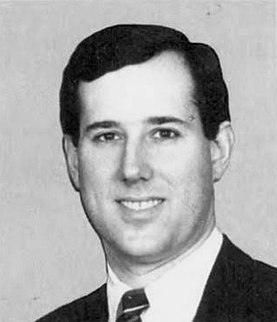
The 1994 United States Senate election in Pennsylvania was held November 8, 1994. Incumbent Democratic U.S. Senator Harris Wofford, who was recently appointed to the position in 1991, decided to seek re-election to a full six-year term, but was defeated by Republican Rick Santorum.
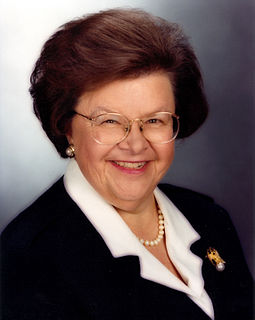
The 1986 United States Senate election in Maryland was held on November 3, 1986. Incumbent Republican U.S. Senator Charles Mathias, Jr. decided to retire, instead of seeking a fourth term. Democratic nominee Congresswoman Barbara Mikulski defeated Reagan Administration official Linda Chavez for the open seat.
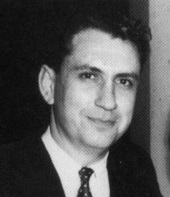
The 1986 United States Senate election in Pennsylvania was held on November 4, 1986. Incumbent Republican U.S. Senator Arlen Specter won re-election to a second term.

The 2012 United States Senate election in Pennsylvania was held on November 6, 2012, alongside a presidential election, other elections to the United States Senate in other states, as well as elections to the United States House of Representatives and various state and local elections. Incumbent Democratic U.S. Senator Bob Casey, Jr. ran for and won re-election to a second term, defeating Republican nominee Tom Smith, and Libertarian nominee Rayburn Smith.

The 1988 United States Senate election in Pennsylvania was held on November 8, 1988. Incumbent Republican U.S. Senator H. John Heinz III successfully sought re-election to another term, defeating Democratic nominee Joe Vignola.























